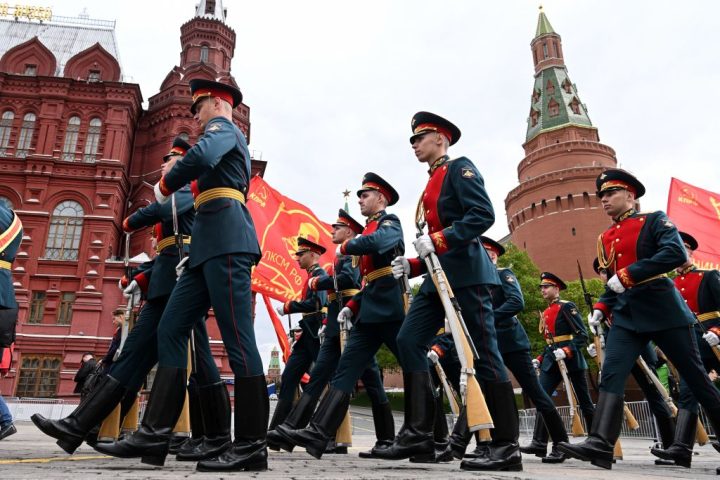Few Russians go willingly to fight in the ‘meat grinder’ of Ukraine, where Russia has faced as many as 100,000 casualties. With a lack of volunteers, the Wagner Mercenary Group – which has recruited from penal colonies to keep fighting numbers up – has come to Putin’s aid. The Kremlin has also rolled out a partial mobilisation of the Russian army. Officially, 300,000 men were called up, although the true figure is likely to be higher. Many more Russians – up to a million – chose instead to flee. New analysis of cases listed in Russian military courts has revealed that record numbers of soldiers have been going absent without leave (Awol) this year.
Data collected by the independent Russian investigative outlet Mediazona shows that between January and the start of May, 1,053 Awol cases were registered in military courts. This is more than in the entirety of 2022, when a total of 1,001 cases for being absent without leave were heard in the courts.
Putin is having as much difficulty keeping troops at the front, as he did trying to get them there in the first place
A closer look at the court listings reveals that 94 per cent of the cases heard this year so far were initiated after partial mobilisation was announced last autumn. Most of these cases have been brought under harsh legislation – known as Article 337 of the Russian criminal code – that was introduced last year. It was designed to deter mobilised soldiers from abandoning their posts. Now, it is being used to punish those who have chosen to flee the blood-soaked fields of Ukraine.
The first trials of mobilised soldiers accused of going Awol began filtering through Russia’s military court system in November. By March and April, they were making up over 75 per cent of cases being heard, with more than 300 Awol hearings scheduled across Russia each month.
As a result of this new influx of trials, the volume of military court cases has ballooned to nearly quadruple the average monthly total for 2022. As of April, the regions with the highest number of cases for breaches of Article 337 were the Moscow region, followed by Samara in south-west Russia and Kaliningrad, the country’s outpost sandwiched between Lithuania and Poland.
This crackdown will almost certainly continue as the war in Ukraine drags on. In the Moscow region military court, 12 cases for soldiers going Awol are being heard this week alone. In Chelyabinsk, close to the border with Kazakhstan, eight soldiers have been put on trial since Monday. Soldiers found guilty face harsh punishments, including lengthy spells in penal colonies, often stretching to many years. One private from the Nizhny Novgorod region, who went Awol for approximately five weeks to go home over Christmas, was sentenced to five years in such a colony.
But it appears that, increasingly often, soldiers convicted of going Awol are being handed down suspended sentences. The cynical reason for this seems to be a clause written into Putin’s mobilisation order in September which forbids the discharge of those mobilised soldiers who hold suspended sentences for convictions, meaning they are essentially forced to fight indefinitely. Not only are convicted mobilised soldiers therefore returned to the front line they tried to avoid, but for them there is then no way home.
Repeat offenders who go absent without leave are still being sent to prison. It may be the case that as this war progresses, we begin to see a rise in the number of repeat offender cases being brought before Russia’s military courts as the number of those trying to get out of front line duty increases.
The rising number of Awol cases hints at the true state of morale, and a degree of desperation, amongst mobilised Russian troops. This seems to be something the military is well aware of, with instances recorded of troops ordered to attend the trial of a comrade as warnings to others considering abandoning their posts.
Men mobilised to fight in Ukraine were, for the main part, forcibly recruited. These figures show that Putin is having as much difficulty keeping troops at the front, as he did trying to get them there in the first place.







Comments